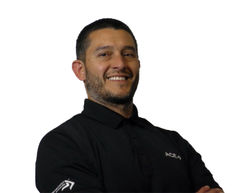The behavior-change coach can be a powerful ally to individuals passionate about playing a stronger hand in fending off lifestyle-related disease. The core reason is that a behavior-change coach does not dispense expertise. Instead, a behavior-change coach empowers others. In the relationship between coach and individual being helped, the individual is encouraged to trust his or her life experiences that can hold valuable lessons to help uncover the best, often unique path to lasting healthy change. In this person-centered approach, the coach serves as a facilitator, never the director, of the behavior-change journey.
The defining technique of course is motivational interviewing, developed by psychologists William R. Miller, Ph.D. and Stephen Rollnick, Ph.D. As a tool for applying behavior-change science, motivational interviewing empowers individuals to experiment with new habits that might better represent their ideal self. The behavior-change coach creates the environment for an individual to discover his or her own values relevant to health and brings awareness to how current behaviors either support or deviate from those values. The behavior-change coach works to uncover one's motives for change, to make sense of them, and to apply them in daily activity. With this guidance and coaching, individuals are more likely to fend off lifestyle-related disease through sustained, self-identified behavior changes.




 by
by 








 by
by